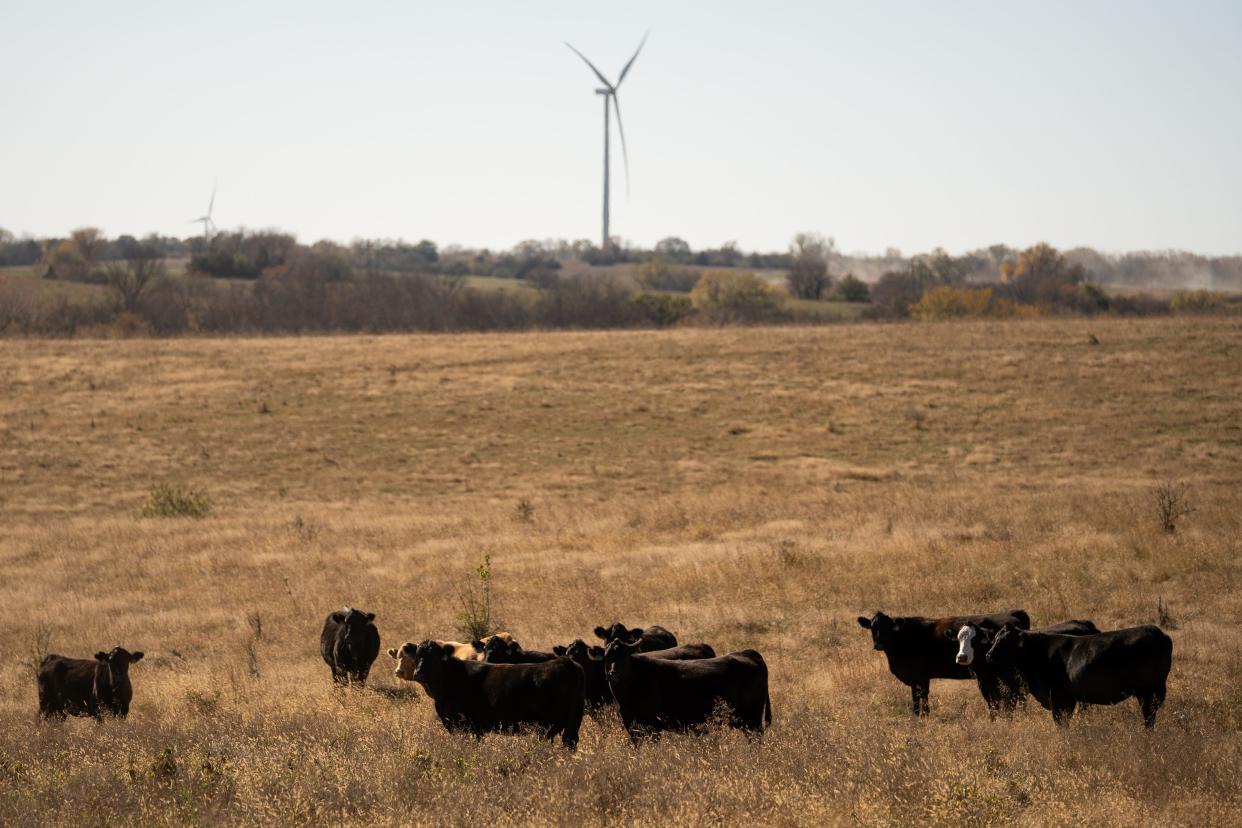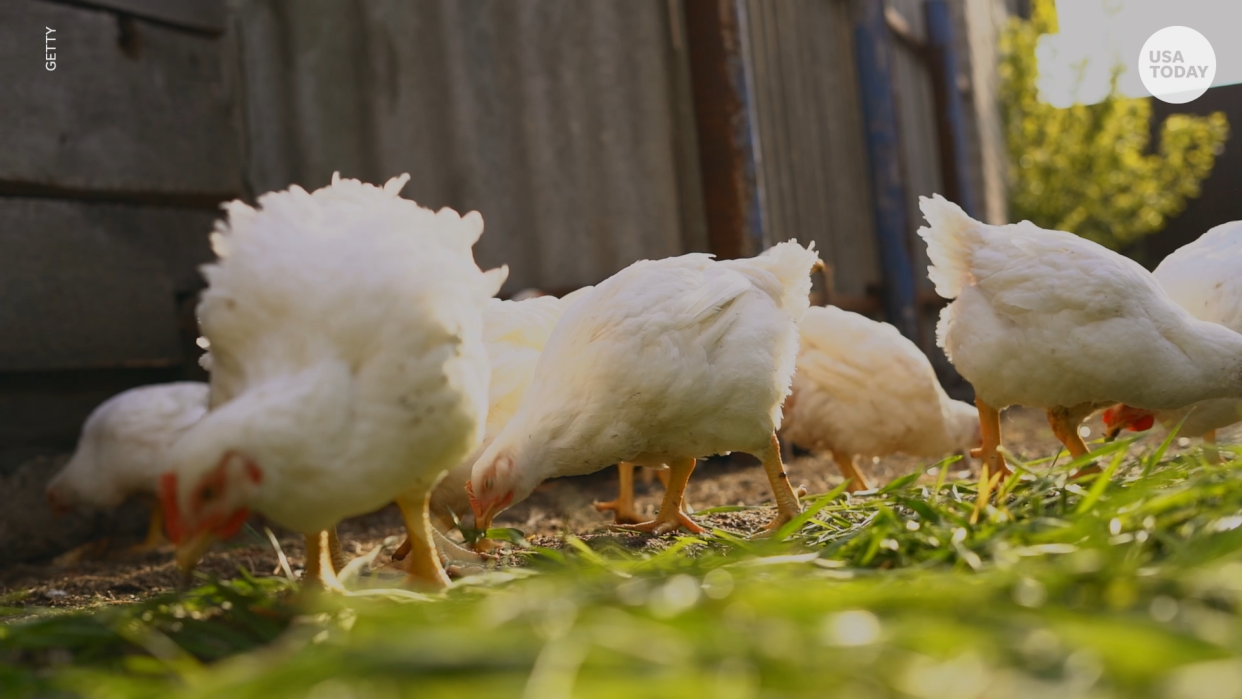Human case of bird flu detected in Texas after outbreak of virus among cattle
Less than a week after sick dairy cattle in Texas and Kansas tested positive for bird flu, Texas state officials reported that a person in the state has been infected with the virus after coming into close contact with the infected cows.
The Texas Department of State Health Services said in a news alert Monday that the patient became "ill following contact with dairy cows presumed to be infected with avian influenza" and that their primary symptom was conjunctivitis, also known as pink eye.
Officials said it is the first human case of the highly pathogenic strain of avian influenza in Texas and the second in the U.S. They said it is "believed to be associated with the recent detections of avian influenza A(H5N1) in dairy cows."

What to know: Milk from sick dairy cattle in 2 states test positive for bird flu
Bird flu risk to general public
Federal and state health authorities are investigating the outbreak, the news alert said. It added that the risk to general public is low.
"Avian influenza A(H5N1) viruses have only rarely been transmitted from person to person," authorities said. "As such, the risk to the general public is believed to be low; however, people with close contact with affected animals suspected of having avian influenza A(H5N1) have a higher risk of infection."
The state department of health, however, has warned health care providers to be vigilant about the sign and symptoms of bird flu, especially among people who have regular contact with animals.

Bird flu in dairy cattle in Kansas, Texas
The U.S. Department of Agriculture announced last week that the highly contagious pathogenic avian influenza virus (HPAI) had been found in unpasteurized clinical samples of milk from ill cows at two dairy farms in Kansas and one in Texas, plus a swab from a dairy cow in Texas.
The agency said its officials, along with the Food and Drug Administration, Centers for Disease Control and Prevention and state veterinary and public health authorities, were investigating an illness detected primarily in older dairy cows in those states, as well as in New Mexico.
Wild migratory birds are believed to be the source of the infection, the USDA had said.
What is bird flu?
Bird flu is a disease caused by a family of flu viruses primarily transmitted among birds.
Avian influenza viruses, according to the CDC and the USDA, are classified into two groups: low pathogenic avian influenza (LPAI, often seen in wild birds) and HPAI, found mostly in domestic poultry. According to the Centers for Disease Control, LPAI viruses cause mild or no disease, while HPAI cause severe disease and high mortality rates in infected birds.
Bird flu has cost the government roughly $660 million and in recent times raised the price of eggs and poultry. At least 58 million birds were slaughtered last year to limit the spread of the virus.
Bird flu symptoms
Signs and symptoms of bird flu, according to the Texas Department of State Health Services, can include:
Fever (temperature of 100 degrees or greater), or feeling feverish or experiencing chills
Cough
Sore throat
Runny or stuffy nose
Headaches
Fatigue
Eye redness (conjunctivitis)
Difficulty breathing/shortness of breath
Diarrhea
Nausea
Vomiting
Seizures
In some cases, infected patients may also experience conjunctivitis, or redness in the eyes, the department says.
Those infected with avian influenza experience symptoms ranging from mild to severe, says the health department, explaining that reports of severe illness in humans "have included fulminant pneumonia leading to respiratory failure, acute respiratory distress syndrome, septic shock, and (even) death."
Health care providers have been advised to immediately consult their local health department if they come across patients who are experiencing the symptoms and have come into close contact with livestock and cattle.
Contributing: Natalie Neysa Alund
Saman Shafiq is a trending news reporter for USA TODAY. Reach her at sshafiq@gannett.com and follow her on X, the platform formerly known as Twitter @saman_shafiq7.
This article originally appeared on USA TODAY: First human infected with bird flu from cattle after outbreak in Texas




